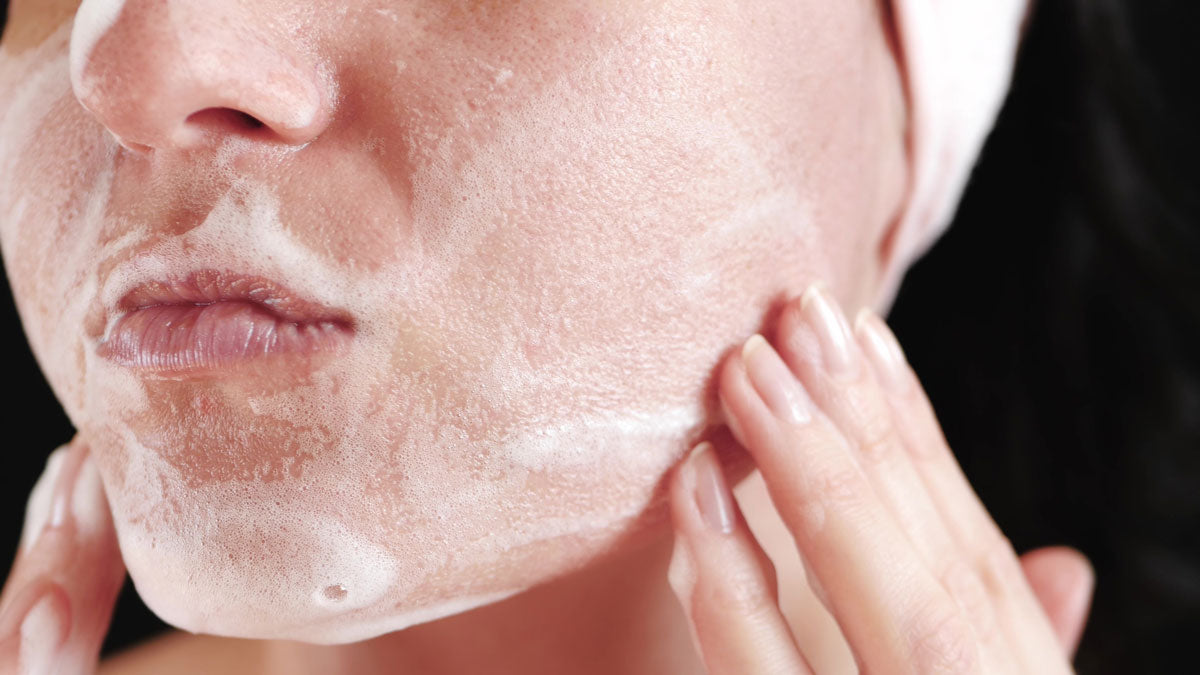
Sulfates and Parabens | What Are They and Are They Bad For You
WRITTEN BY MADISON SCHMIDT AND DR. SWATHI
What are sulfates and parabens?
With sulfate and paraben free products emerging on shelves, the questions have been sparked: What are sulfates and parabens? Are sulfates and parabens bad for you? What is the point of having sulfate and paraben free products? And now it is time to answer these questions!
Sulfates
Sulfates are salts formed from sulfonic acid. The most common sulfates found in cosmetics include sodium lauryl sulfate (SLS) and sodium laureth sulfate (SLES). SLS and SLES are commonly added to cosmetic products like shampoo and soap due to their cleaning capabilities. Sulfates function to remove dirt and oils from the skin by trapping them so they can be washed away from the body (1).
Parabens
Parabens are preservatives added to cosmetic products to prevent growth of bacteria and/or mold. There are numerous different kinds of parabens, but their names make them easily identifiable. For instance, the most common parabens found in cosmetics are methylparaben, propylparaben, butylparaben, and ethylparaben.
Are sulfates and parabens bad for you?
Currently, the Centers for Disease Control and Prevention (CDC) and the U.S. Food and Drug Administration (FDA) have statements explaining there is not enough evidence for these products to be considered harmful and therefore are considered safe. However, before using any product on our bodies, it is always beneficial to know its effects (2-5).
Sulfates
As mentioned, sulfates are considered safe to use by the FDA, but may want to be avoided by some people. For instance, the American Academy of Dermatology recommends those with rosacea avoid products containing sulfates like SLS as they may cause further skin irritation in these patients (5-6). Furthermore, through its mechanism of cleaning, sulfates can strip our bodies of natural oils which can cause skin dryness, skin irritation, and can even strip dyed hair of its color. If you notice your soap or shampoo is causing irritation or you notice your artificial hair color is fading, try switching to a sulfate free formulation to see if this helps (7).
Parabens
Unlike sulfates that remain on the skin when applied topically, parabens can be absorbed through the skin into the body. The concern with parabens is that once they are inside the body, they have the potential to change hormone levels. This has been shown in both human and animal studies but the effect of the change in hormone levels has not been established. In essence, this means it is not yet known if the amount of parabens in cosmetic products poses any harm. The amount of parabens allowed in single cosmetic products are regulated and it is anticipated that the minimal amounts added are safe to use. Conversely, the amount of parabens when using multiple paraben-containing products is not regulated. Therefore, it may be beneficial to limit the number of paraben-containing cosmetics used by substituting some with paraben-free formulations (8-10).
Are sulfate-free and paraben-free products good for you?
There is lack of extensive data to establish their effects on the human body. People who have sensitive skin or a sensitive endocrine system may benefit from sulfate-free and paraben-free products if other products are not giving desired results or giving unwanted skin irritation.
Resources:
- Dias MF. Hair cosmetics: An overview. Int J Trichology. 2015; 7(1): 2–15.
-
Parabens factsheet. Centers for Disease Control and Prevention (CDC). April 2017.
- Parabens in cosmetics. U.S. Food and Drug Administration (FDA). August 2020.
- Gunasekar PG, et al. Prediction of molecular mechanism of skin irritation after acute exposure to sodium lauryl sulfate. Centers for Disease Control and Prevention (CDC). 2002; 66(1-S):162.
- Code of federal regulations title 21. U.S. Food and Drug Administration (FDA). April 2020.
- Six rosacea skin care tips dermatologists give to their patients. Am Acad of Derm. 2021.
- Is sulfate-free shampoo right for you? Answer these 5 questions to find out. Redken. November 2016.
- Nowak K, et al. Parabens and their effects on the endocrine system. Mol Cell Endocrinol. 2018; 474: 238-251.
- Matwiejczuk N, et al. Review of the safety of application of cosmetic products containing parabens. J Appl Toxicol. 2020; 40(1): 176-210.
-
Stoiber T. What are parabens, and why don’t they belong in cosmetics? Environmental Working Group (EWG). April 2019.
--
This article was edited by Dr. Swathi and was written by Element Apothec Scientific Communications Intern, Madison Schmidt. She is a Doctor of Pharmacy (PharmD) student at Southern Illinois University Edwardsville School of Pharmacy in Edwardsville, Illinois.











